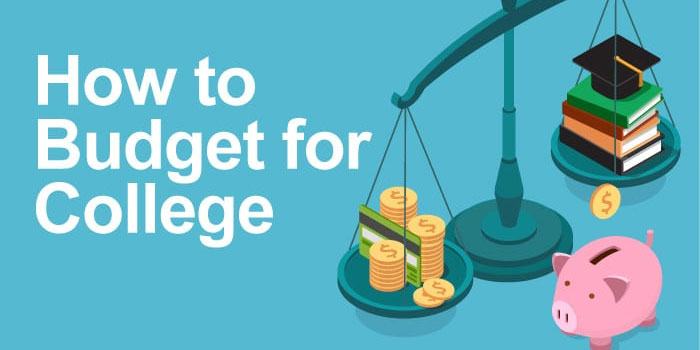The Student's Guide to College Budgeting
Susan Kelly
Mar 01, 2022
When it comes to your money, your spending habits directly influence your current and future financial well-being. You'll learn what kinds of loans you're eligible for and whether or not you have the money set aside for unanticipated needs.
Students who are financially educated can better plan and stick to a college budget and achieve their academic and personal objectives.
In this comprehensive guide, you'll learn all you need to know about creating a college student budget. You'll discover money-saving tips and witness a college student's budget in action.

What Is the Importance of a Student Budget?
According to the College Board, graduates of four-year colleges in 2019-20 with student loans had an average debt amount of $28,400 in 2019-20. According to a Sallie Mae study, students borrowed an average of $1,309 in credit card debt in 2021.
Students who take out loans to pay for education owe about $30,000. It might take a long time to pay off this much debt, significantly when interest rates rise. Personal development may be hampered, and career advancement may be restricted as a result.
Students may considerably lessen this financial burden with careful consideration of their requirements, constraints, and long-term aspirations.
Basics of College Budgeting
Basic budgeting allows you to keep track of all of your monetary transactions, both incoming and outgoing (income and expenses). Income might come from various sources, including part-time work and student loans.
There are two types of expenses: recurrent (such as tuition) and variable (such as rent) (e.g., dining out). Continue reading to learn more about what it's like to be a college student and how much money you'll need.
College Budgeting: Keeping Tabs on Your Earnings and Spending
As you keep track of your income and spending, be sure you've covered all of your financial bases. For example, your parents may make regular deposits into a checking account to cover your expenses, and you may also get compensated in cash for odd jobs you undertake in addition to your studies on the weekends.
An accurate budget is the first step to proper money management if you consider all of your sources of income and expenditures. In addition, set a time limit for your budget before you begin.
Keeping Track of Your Expenses
It's time to handle your costs after you've accounted for your revenue for the specified period. As always, the tiniest details may make a big difference. Expenses are incurred if you have a "negative" balance in your account.
Please note all of your outgoing costs and separate them into two categories: those that are constant and those that are not. A recurring expense is a fixed cost that occurs at a predetermined frequency. A variable cost is a cost that changes based on the degree of activity.
Taking a Closer Look at Your Income vs. Expenses
Once you've compiled a list of your monthly and semester earnings and outgoings, add them up. As a general rule, you should have more money coming in than going out at any one time.
Part-time work or a raise in monthly income (e.g., student loans or car payments) may be a better option, but if not, it's time to make some changes (e.g., eating out less).
The 50/20/30 guideline is an excellent place to start when planning your budget. If you have a set monthly rent, 20 percent should be used to pay off debts or build savings, and the remaining 30 percent should be used to pay for regular expenses like food.
Seeing all of your spendings in one place makes it much easier to spot areas where you may save money.
College Students' Benefits of Using a Budget

Many people put off budgeting their finances because they don't want to face the consequences. Paper deadlines, examinations, jobs, and family responsibilities are just a few of the urgent challenges college students must contend with daily.
Compared to your other responsibilities, this crucial piece of the jigsaw might rapidly go by the wayside in terms of your priority list.
Creating a financial budget may be intimidating and even monotonous, which may contribute to the difficulty of this task.
Perhaps Excel isn't your best buddy. You're not the only one, either. Many tools are available to make the process of creating a personal budget easier and more enjoyable than you would anticipate.
Simple Changes That Benefit You
You may be surprised at how much money you spend after having a budget in place. It's much worse for sure folks who spend more than they earn. On the other hand, a few minor adjustments may show you just how much flexibility you have in your expenditures.
I know you've heard it before, but I'll say it once more: Many people spend hundreds of dollars a year going to the coffee shop every day or eating out at least once a week. These are quick remedies that can significantly influence your financial situation.
Imagine simply going to a coffee shop once a week and brewing your coffee the rest of the week. You'd save money and time. Depending on your beverage of choice, you may save $15 a week.
Making a Budget Pays
Creating a budget and living frugally throughout your college years is the most excellent way to save money that can be used to pay for your tuition, books, student loan payments, and many other expenses that thousands of students use every day for student loans to pay for.
Student loans are not your only choice for paying for college. When it comes to reducing your student loan debt, creative planning and shifting spending patterns can open up some vast cash-pay choices.







